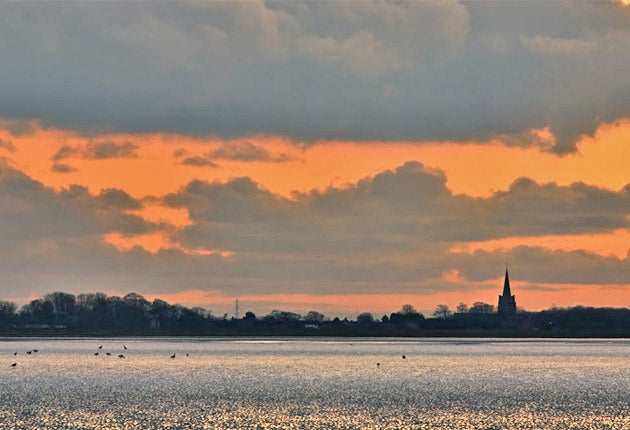Deep under Lancashire, a huge gas find that could lead to 800 'fracking' wells

Your support helps us to tell the story
From reproductive rights to climate change to Big Tech, The Independent is on the ground when the story is developing. Whether it's investigating the financials of Elon Musk's pro-Trump PAC or producing our latest documentary, 'The A Word', which shines a light on the American women fighting for reproductive rights, we know how important it is to parse out the facts from the messaging.
At such a critical moment in US history, we need reporters on the ground. Your donation allows us to keep sending journalists to speak to both sides of the story.
The Independent is trusted by Americans across the entire political spectrum. And unlike many other quality news outlets, we choose not to lock Americans out of our reporting and analysis with paywalls. We believe quality journalism should be available to everyone, paid for by those who can afford it.
Your support makes all the difference.The discovery of huge underground deposits of natural gas in Lancashire could lead to a massive expansion in the controversial process of "fracking" (fracturing rock), resulting in hundreds of new wells being sunk across the countryside.
Up to 200 trillion cubic feet of gas has been located by Cuadrilla Resources, which holds the licence to exploit the Bowland Shale area outside Blackpool, and claims 1,700 new jobs may now be created as a result of the discovery.
The total reserve quantities, which must be blasted from rock using highly pressurised water, sand and chemicals, would provide enough gas to meet the entire UK demand for 66 years – although the final amount recoverable will be substantially less.
The company admitted that the figure for the reserve had not been independently verified but said it did not expect the final amount to be much different.
News of the scale of the find dismayed environmentalists who are demanding a moratorium on shale gas activity until further research is carried out. They fear large-scale exploitation could lead to problems with water and air contamination as well as adding to greenhouse gases.
Cuadrilla was forced to suspend fracking earlier in the summer after two earthquakes prompted an urgent review into the safety of the process.
However chief executive Mark Miller hinted yesterday that the review, currently being carried out by the company's own team of experts and due to be passed to the Department of Energy and Climate Change within the next few days, was likely to pave the way for the resumption of fracking.
Mr Miller said he envisaged 400 wells, possibly as many as 800, being drilled at 40 different locations. He admitted that the amount of reserves had been much higher than originally believed. "When you go to an exploration probe you don't really have an expectation, you have a hope. But it is higher than we expected – surprisingly higher," he said. "Now we have to get to the level where we know how much of this is recoverable."
Concern over fracking has grown since the release of GasLand, an Oscar-nominated documentary highlighting environmental degradation in United States' gas fields. However, ministers remain committed to exploration if it can be proved to be safe, economical and environmentally justifiable. Up to 140 campaigners last weekend staged Camp Frack at Hesketh Banks near Preston, one of the three exploratory sites where drilling is continuing. In August two protesters climbed Blackpool Tower to unfurl an anti-fracking banner.
The company talked of a potential "Aberdeen-effect" for Lancashire which it said could generate £120m in local business rates and up to £6bn for the UK economy with benefits peaking in 2016.
Jenny Banks, energy and climate change policy officer at WWF-UK, said not enough research had been done into possible water pollution. "The Government should at the very least halt shale gas exploration in Britain until more research can be undertaken on both the climate change impacts and contamination risks associated with shale gas," she said.
Lord Browne: the man behind the plan
Cuadrilla Resources enjoys the backing of former BP boss Lord Browne, who is a non-executive director of the company. The former oil industry titan resigned in 2007 after it emerged he had lied to a court to protect his privacy over a gay relationship. He recently oversaw a review of higher education which recommended lifting the cap on tuition fees.
Join our commenting forum
Join thought-provoking conversations, follow other Independent readers and see their replies
Comments